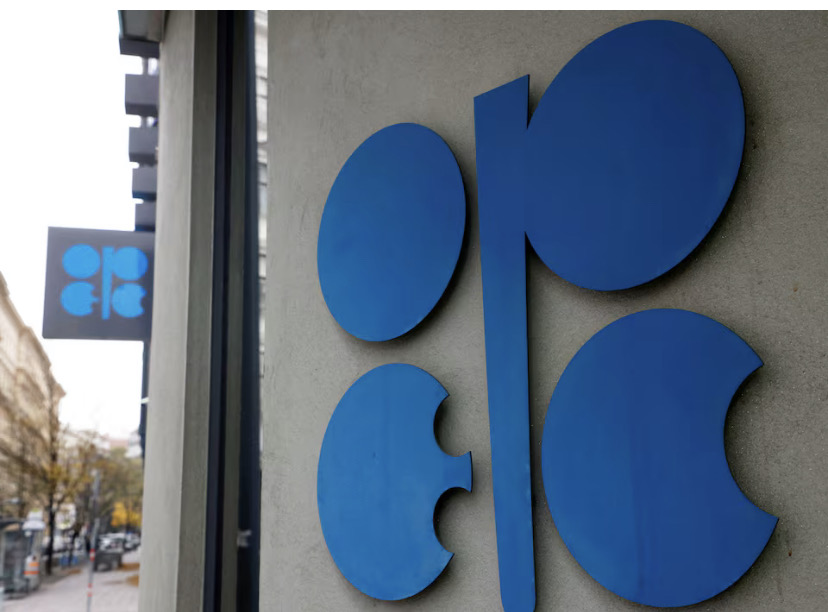Saudi Arabia has invited OPEC+ oil ministers to Riyadh to hold their June 2 policy meeting to discuss a complex deal that may extend deep oil production cuts into 2025, sources from the producer group told Reuters on Friday.
Kazakhstan’s energy minister Almasadam Satkaliev will travel to Riyadh, Shyngys Ilyasov, an adviser to the minister, told Reuters by phone. The adviser did not say how many other OPEC+ ministers would attend.
The Organization of the Petroleum Exporting Countries led by Saudi Arabia and allies including Russia, known as OPEC+, has made a series of output cuts since late 2022 amid rising production from the United States and other non-members.
OPEC+ is currently cutting output by a total of 5.86 million barrels per day, equal to about 5.7% of global demand.
The cuts include 3.66 million bpd by OPEC+ members valid through to the end of 2024, and 2.2 million bpd of additional voluntary cuts by some members which expire at the end of June.
A deal on Sunday could include extending some or all of the cuts of 3.66 million bpd into 2025 and some or all of the voluntary cuts into the third or fourth quarter of 2024, three sources familiar with OPEC+ discussions said on Thursday.
Another source, an OPEC+ delegate, when asked on Friday if Sunday’s meeting would make decisions on 2025, said: “Part of it, yes.”
The extension of some cuts into next year will likely be made conditional on OPEC+ agreeing new individual member output capacity figures later in 2024, two of the sources said.
Oil prices have risen this year but concern about demand and the prospect of higher-for-longer interest rates in major economies has weighed. Brent , the global benchmark, traded below $82 a barrel on Friday, down from a six-month high of $92.18 in April.
SERIES OF MEETINGS
Not all ministers are expected to travel to Riyadh for Sunday’s meeting, which is still officially scheduled as an online gathering. A series of meetings is expected to begin at 1000 GMT on Sunday.
The invitation to the Saudi capital is the second change of plan. OPEC+ originally planned to convene at OPEC’s Vienna headquarters but shifted the meeting online.
OPEC+ is trying to agree new oil production capacity for its member countries by the end of 2024, an issue that has created tension in the past because each nation’s output target is calculated based on its notional capacity.
“If the cuts are indeed extended into 2025 that will also raise the issue of the group’s planned capacity audit and baseline reset, which likely won’t be settled until later this year,” said Rory Johnston, founder of oil research service Commodity Context.


